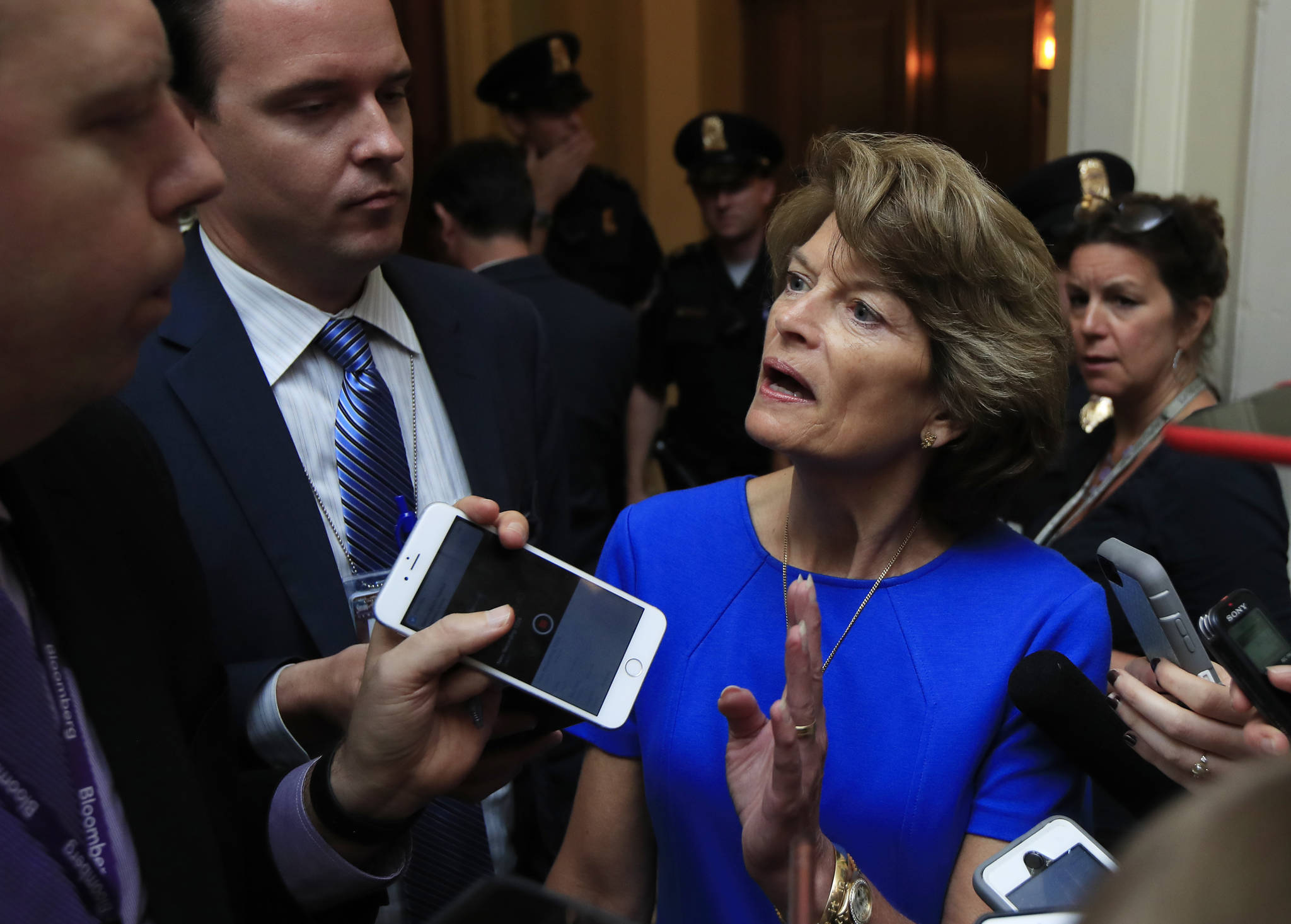The Affordable Care Act is here to stay, and that’s in large part because of Sen. Lisa Murkowski.
Alaska’s senior U.S. Senator cast one of three decisive votes early Friday, joining fellow Republicans Sen. John McCain (Arizona) and Sen. Susan Collins (Maine), plus all of the U.S. Senate’s Democrats.
The Friday vote is only part of the story, however, and Murkowski isn’t the only U.S. Senator from Alaska. If you’re just catching up with the health care story, or you’re looking for a quick summary of the past week, this is it.
How did we get here?
In 2009, Congress passed the Affordable Care Act, commonly known as Obamacare. Murkowski voted against it, but then-Sen. Mark Begich, D-Alaska, voted for it.
Obamacare expanded Medicaid, enacted new taxes, distributed subsidies to states, banned insurers from discriminating against people with pre-existing conditions and required Americans to have some kind of health care insurance. Obamacare created a subsidized marketplace for poorer Americans who couldn’t otherwise afford insurance.
As the program got started, Republicans maintained their opposition to the program even as the number of uninsured Americans dropped. The U.S. House, which became majority Republican after the 2010 election, has voted more than 60 times to repeal the program.
The U.S. Senate in 2015 also voted to repeal the program, and Murkowski voted to repeal it at that time. The Senate’s vote was vetoed by President Barack Obama, but the election of President Donald Trump meant no one would veto any repeal approved by Congress.
After Trump’s inauguration, it was up to Congress to repeal the program.
Before this week
After Trump was inaugurated, the U.S. House drafted and passed yet another Obamacare repeal bill. Because the House has a broad Republican majority, this happened relatively quickly.
The Senate has a much smaller Republican majority. There are 52 Republicans and 48 Democrats there, if you include the two independents who side with the Democrats on most issues.
In an attempt to keep moderate Republicans on the side of the majority, Senate leaders crafted the Better Care Reconciliation Act, a replacement for Obamacare that would cut the federal deficit by $420 billion but increase the number of uninsured Americans by 22 million.
This week
On Tuesday, the Senate voted 51-50 (Vice President Mike Pence cast a tiebreaking vote) to advance the BCRA to a vote of the full Senate. Murkowski voted against advancing the bill to a vote; Sen. Dan Sullivan voted in favor.
Two amendments were passed on the Senate floor in an attempt to garner more support, but on Tuesday night, the BCRA was defeated 43-57. Murkowski voted no and Sullivan voted yes. Murkowski was joined in the “no” column by nine other Republicans.
On Wednesday, Senate leaders offered a “straight repeal” of Obamacare. Instead of replacing it with the BCRA, the vote was to simply turn back the clock on the nation’s health care system to 2008.
That vote also failed, 45-55. Murkowski again voted no, and Sullivan again voted yes.
On Friday, Senate leaders offered one last option. This choice, called the “skinny repeal,” would just eliminate the requirement for Americans to buy insurance, and it would delay a tax on medical devices.
It failed 49-51. Murkowski, McCain, Collins and the Senate’s Democrats voted “no.” Sullivan voted yes.
Why vote no?
If you’re an Alaskan, Obamacare (as currently structured) is fairly generous. Because health care is expensive here, most people get big subsidies if they have to buy insurance on the federal marketplace.
One-quarter of Alaskans use Medicaid, including one-third of Alaska children and more than half of Alaska’s disabled residents. All of the repeal options this week would affect Alaska significantly and according to repeated nonpartisan reviews by the Congressional Budget Office and Kaiser Health, among others, Alaskans would see health care costs rise rapidly and insurance become more scarce.
Why vote yes?
Both Murkowski and Sullivan have previously promised that they would support repeal efforts. Sullivan in 2014 campaigned on the promise that he would do so. In 2016, Murkowski made similar pledges and urged the program to be reformed.
Furthermore, the Affordable Care Act has failed to stop health care costs from rising in Alaska, and the state’s insurance marketplace is now down to a single company, which is being subsidized by the state government as well as the federal government.
A straight repeal could lead to a system that favors Alaska even more, though there is no guarantee of that outcome.
This week, President Trump offered another incentive for Murkowski and Sullivan: He warned that Alaska projects could be slowed in retaliation for a “no” vote.
If that happens, Murkowski and Sullivan have the ability to retaliate themselves: Murkowski is one of the key figures that decides the budget for the Department of the Interior and appointments to that department. Either senator could also block presidential nominees from progressing to a vote.
What next?
The Affordable Care Act remains law and stays in place. President Trump could take actions on his own to hamper the program, but Congress is out of the picture for now. If legislators have an appetite to return to the subject, they can draft a new bill, something that might draw Democratic support as well as Republican support. If that happens, a repeal becomes much more likely.
Contact reporter James Brooks at james.k.brooks@juneauempire.com or call 523-2258.

